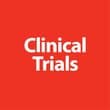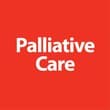Acute Liver Failure
The aim of this study is to gather prospective demographic and clinical data on Acute Liver Failure patients with varying etiologies. Blood samples, clinical data and survival will be obtained x 7 days.
Contact Information
Angela Liu
University of Michigan
Phone: 734-936-4886
Email Address: angeliu@med.umich.edu
Drug-Induced Liver Injury
The goal of this protocol is to create a database and bank of biological specimens (DNA, plasma, lymphocytes) from individuals with severe drug-induced liver injury (DILI) due to isoniazid (INH), phenytoin (Dilantin), amoxicillin /clavulante (Augmentin) or valproic acid (Depakote) after January 1, 1994.
Contact Information
Kristin Chesney, Study Coordinator
University of Michigan
Phone: 734-936-4886
Phone: 866-UM-LIVER
Email: kches@med.umich.edu
Role of Pioglitazone (Actos) for the treatment in Chronic Hepatitis C
A study of Pioglitazone vs. Placebo given along with Standard Hepatitis C Treatment (pegylated protein used by the body to fight infection. It is prescribed as an injected medication for people with hepatitis B or hepatitis C.
Insulin resistance (IR), a key factor in the development of fatty liver (steatosis), liver cell injury and scarring (fibrosis) is common in patients with hepatitis C virus (HCV) infection. Recent data suggests that IR and steatosis may lead to progression of liver disease and lower response to treatment especially in hepatitis C especially in genotype 1 infection.
In this study, we will be testing whether the addition of an insulin sensitizing medication (pioglitazone or Actos) to standard antiviral therapy (pegylated interferon ribavirin) will result in improving IR and liver injury in patients with HCV genotype 1 infection. The study involves out-patient visits every four to eight weeks for lab draws and follow-up. A repeat liver biopsy will be done after completing treatment to look for improvement of NASH. We will also study whether this will improve response to treatment in achieving virus eradication (sustained virological response).
Main Inclusion (Eligibility) Criteria
- Previously untreated (treatment naïve) HCV genotype 1 patients with a liver biopsy done within 6 months of enrollment (others may require a repeat biopsy).
- Insulin resistance based on HOMA index value (HOMA-IR) of >2.0 during screening
Main Exclusion Criteria
- Evidence of cirrhosis on liver biopsy
- Diabetes Mellitus
- Human immunodeficiency virus (HIV) vaccine or coming into contact with a virus. They protect the body against future infections.
Costs for the Patient
The drugs pegylated interferon ribavirin and the study medication (pioglitazone or placebo) will all be provided free of charge along with certain blood tests that are done for the purposes of the research study. If a patient needs a repeat biopsy to enroll into the study this will be covered by the study. The costs of certain blood tests done as part of standard treatment will be billed to their insurance.
Contact Persons
Please contact Donna Harsh at (734) 763-6647 [e-mail: dharsh@med.umich.edu] or Dr. Hari Conjeevaram at (734) 615-9759 [e-mail: omsairam@med.umich.edu] if you have any questions.
Studies in Drug – Induced Liver Injury
I. Idiosyncratic Liver Injury Associated with Drugs (ILIAD)
The goal of the ILIAD protocol is to create a database and bank of biological specimens (DNA, plasma, lymphocytes) from individuals with severe drug-induced liver injury (DILI) due to isoniazid (INH), phenytoin (Dilantin), amoxicillin/ clavulanate (Augmentin), or valproic acid (Depakote) after January 1, 1994. This study is funded by the NIH/ NIDDK.
Study Design
- Telephone or personal interview of medical history surrounding DILI event
- Single blood draw
- Participant receives $75
Please contact Kristin Chesney at (734) 936-4886, toll free 1-866-UM-LIVER, or kches@med.umich.edu or Robert Fontana rfontana@umich.edu for referrals or questions.
II. A Multi-Center, Longitudinal Study of Drug- and CAM-Induced Liver Injury
The goal of this NIH study is to prospectively identify bona fide cases of liver injury due to drugs and complementary and alternative medications (CAM) within 6 months of onset. Clinical data, blood, DNA, and urine will be collected from affected patients and matched controls for mechanistic and genetic studies.
Study Design
All subjects have a baseline and 6-month follow-up visit at the University of Michigan which includes: surveys, medical history, blood, and urine collection.
Patients with liver injury at 6 months return for 12 and 24- month visits.
Costs
- Costs of study lab tests are provided by the sponsor (NIDDK).
- Subjects receive $50 for each completed study visit.
Contact
Please contact Kristin Chesney at (734) 936-4886, toll free 1-866-UM-LIVER, kches@med.umich.edu, or Robert Fontana rfontana@umich.edu for referrals or questions.
University of Michigan Health System – Hepatitis C Clinical Research Study
Role of Pioglitazone (Actos) treatment in Chronic Hepatitis C
Insulin resistance (IR), a key factor in the development of hepatic steatosis, liver cell injury and fibrosis is common in patients with hepatitis C virus (HCV) infection. An association between steatosis and fibrosis has been emphasized in HCV infection. Available studies to date including our own suggest an important role of IR and steatosis in the pathogenesis of liver disease and response to antiviral therapy especially in type 1 infection.
University of Michigan will be testing the hypothesis that in patients with genotype 1 infection, the addition of an insulin sensitizing agent such as pioglitazone to standard antiviral treatment regimen will result in a greater reduction of insulin resistance (IR) and hepatic steatosis compared to antiviral treatment alone. U of M will be testing whether improvement in IR will result in improvement in inflammation and possibly the rate of sustained virological response (SVR) in patients with chronic hepatitis C and genotype 1 infection.
Inclusion criteria
- Males and females: age greater than 18 years of age.
- HCV genotype 1 patients with evidence of chronic hepatitis with a minimum fibrosis score of 1 on liver biopsy done within 6 months of enrollment.
- Insulin resistance based on HOMA index value (HOMA-IR) of >2.0 during screening.
- Able and willing to provide written informed consent.
Exclusion criteria
- Hepatitis C patients who underwent previous therapy for their liver disease
- Genotype other than type 1. Histological evidence of cirrhosis or confirmed hepatocellular carcinoma (HCC).
- Evidence of other causes of chronic liver disease.
- Diabetes Mellitus.
- Medications that lead to hepatic steatosis including such as amiodarone, systemic steroids, tamoxifen, valproic acid, and methotrexate.
- Human immunodeficiency virus (HIV) antibody positive.
Patients with solid organ transplants.
- Pregnancy or breast feeding.
- Participation in any other clinical trial within 90 days of entry into this trial.
- Unwilling to consent for the study.
Contact Information
Donna Harsh, M.S. Research Coordinator
University of Michigan Heath Center
Ann Arbor, MI
Phone: 734-763-6647
Fax: 734-936-7392
Email Address: dharsh@med.umich.edu
Wilson Disease
This randomized double blind study is conducted to compare efficacy and toxicity of three anti-copper drugs, penicillamine, trientine and tetrahiomolybdate for the initial treatment of Wilson Disease patients presenting with liver disease. The objective of the study is to compare rate and degree of recovery of liver function and to compare side effects.
The treatment period is 24 weeks, the first 6 weeks of which are spent in the General Clinical Research Center of the University of Michigan Hospital, with free medical care and hospitalization provided to the extent required for Wilson Disease. The next 18 weeks involves home treatment, with the appropriate anti-copper medication provided. It will be necessary to have blood tests every 2 weeks during the 18 week period at home with the results sent to us. The blood tests involve blood counts and liver function tests, readily available anywhere. Patients will be followed with the referring physician, as desired. Patients will be responsible for travel costs to Ann Arbor and for blood tests during the last 18 weeks.
Contact Information
Fred Askari, MD, PhD
University of Michigan
Phone: 734-647-2964















